The Dutch National Opera closes 2018 with OEDIPE by George Enescu. An opera about a man who thinks he can escape his fate, who walks straight into it as a result, and eventually reconciles with it. This year the winter solstice coincided with a performance of Enesu's Oedipe. On the shortest day of the year I saw the opera about the man who blinds himself after he finds out that the man he once killed was his father and the woman he married was his mother. The Romanian composer George Enescu was a musical child prodigy. At the age of four he played the violin, at the age of five he started composing and at the age of seven he went to the conservatory in Vienna where he graduated at the age of thirteen. After that he went to Paris where he studied with Massenet and Fauré. Oedipe had a difficult history of creation (the time of composition was interrupted by the First World War). It was almost 25 years after Enescu had put the first ideas for Oedipe on paper that the opera premiered in Paris in 1936. Only to be forgotten afterwards. The Dutch National Opera brings Oedipe in a production by Fura dels Baus that could previously been seen in London and Brussels. A very justified attempt to keep this opera artistically alive. My introduction to it was anything but a punishment. In the poisonous mud that caused an ecological disaster in Budapest in 2010, the theatre makers of Fura dels Baus found inspiration to provide Oedipe's stage image with clay. The poisonous clay in Budapest as an analogy to the plague epidemic that is ravaging Thebes. Clay as a depiction of the world of Greek antiquity. The world of Sophocles and the Oedipus myth. Enescu's only opera, in this respect he is in the company of Beethoven and Debussy, strings together the story of Oedipe with music that has freed itself from the romantics of the 19th century and shows itself to be acquainted with the modernity of the 20th century without sailing into atonal waters. Enescu remains true to the classical tonal music system and adds in the score, which he spices with elements of Romanian folk music, his own harmonic inventions and the use of quarter tones. Enescu's music surprises with its originality and the inventive use of orchestral means. Besides a grand piano, celesta, harmonium and Glockenspiel we hear a singing saw and a whip against a piece of wood. The large orchestra may sound impressive, but Enescu is more concerned with the richness of sound than with gratuitous orchestral force. He does not escape the inevitable orchestral eruptions during dramatic events either but Oedipe's tragedy is musically dressed up with a remarkable consideration for detail (especially for those who see finesse as an important condition for acceptance and appreciation). For me the opera made me think (associations are difficult to control) of George Benjamin who, in his Lessons in Love and Violence (a favourite of the past opera year), does not so much as drive the drama forward with his music as well freezes it. Frozen horror instead of music that boils the blood. As if the music - by keeping a certain rational distance to the depicted events - emphasizes what the story implies with every new turn of events: that it is a tragedy to be a human being. How to deal with this, how to conform yourself to your fate, is the task for every human being and a possible victory over fate consists only in accepting that fate in the end. The musical world of Oedipus is a symphonic one. A world that, with every listening, prints its musical splendour in your brain (I have, after last Friday's performance, listened to it several times and the voyage of discovery through the mythical-human world of Enescu's Oedipe is one where the musical richnes continue to reveal itself). It's a world with music that can be used as a film soundtrack, but in general Enescu keeps far from emphasizing what's already obvious. You get a taste of musical umami that has a strange hypnotic effect (for me comparable to the last half hour of Wagner's Götterdämmerung, where the music has both a very explicit and a strong suggestive effect). Next to the orchestra, the choir plays a leading role in this beautiful palette of sounds. At the premiere in 1936 some singers complained that the vocal parts seemed to be written more for violin than for the voice and - certainly in context with the excellent orchestra and choir - this performance of the Dutch National Opera brought some vague memories of that old complaint to mind. The demand on the vocal parts were considerable and listening to an otherwise excellent Johan Reuter in the title role, one might hear possible reasons why this opera has not become part of the standard repertoire yet. Oedipus is a name that today is perhaps identified as much, if not more, with the complex that bears his name than with the original myth. The opera pays no further attention to this, but a reference to Freud is made in the scene in the second act in which Oedipe doubts his origins and tells his foster mother Merope about the images that are haunting his mind. The setting here is one of a patient sitting on a psychiatrist's sofa. In the lower regions of the strings, the base on which the opera rests, the male voices find their natural habitat. In this dark musical world the female roles for the Sphinx (Violeta Urmana) and Antigone (a sparkling and moving Heidi Stober) stand out. The role of the Sphinx is one with notoriously difficult quarter tones, Urmana (known from her role as Kundry in Parsifal under the baton of Adam Fisher) fulfills that task of singing those notes with great dramatic effect. Music and image create a terrifying sphinx. Her appearance comes with horror-like elements. Slowly she crawls over the back of a fighter plane into the field of vision of Oedipe who - in order to pass - must answer her question properly. "What is stronger than fate? Enescu and librettist Fleg replace the original question "What walks in the morning on four, in the afternoon on two, and in the evening on three legs?" with a (perhaps less childish) question with the same answer: "man". That question on life and death, we know it from both Wagner and Monty Python, is answered well by Oedipe. The Sphinx surrenders and hears her dying notes pass into the rising glissandi of a singing saw. With this musical discovery she leaves the story with a laugh. A laugh that places Oedipe's answer in an ambivalent light. Because is man really capable of overcoming his fate? Not for Sophocles anyway, but Enescu sticks an epilogue to Oedipe's story, which more or less brings the story to a good end. Oedipe may plead his innocence because he did not know that the man he killed was his father (Laios) and the woman he married was his mother (Jocaste). His intention, not the deed itself, is of guidance to determine that he's innocent. And Oedipe, as a reward, can see again. After a shower which cleanses the burdened mind of Oedipe (the staging here does not avoid cliches) he is given a new future after death. Walking into the light and out of the story. Leaving this opera year with a worthy closener. Dutch National Opera - 21 December 2018 Oedipe: Johan Reuter Tirésias: Eric Halfvarson Créon: Christopher Purves Le Berger: Alan Oke Le Grand-Prêtre: François Lis Phorbas: James Creswell Le Veilleur: Ante Jerkunica Thésée: André Morsch Laios: Mark Omvlee Jocaste: Sophie Koch La Sphinge: Violeta Urmana Antigone: Heidi Stober Mérope: Catherine Wyn-Rogers - Wouter de Moor
0 Comments
|
TIMELINE
July 2024
|

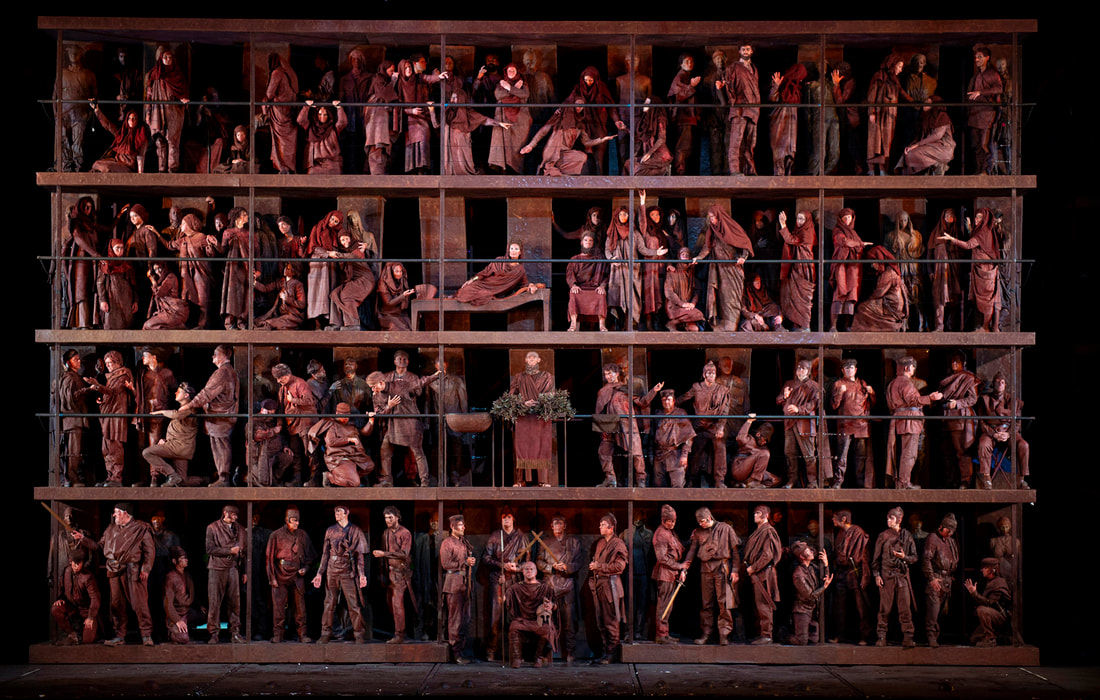
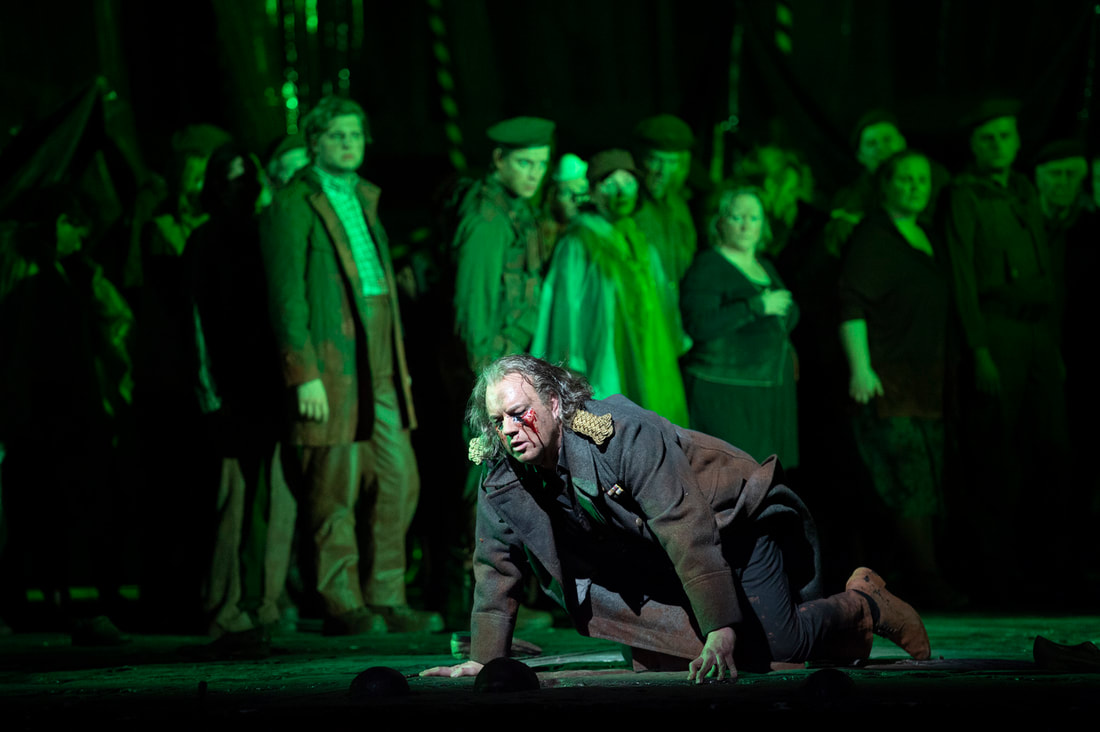
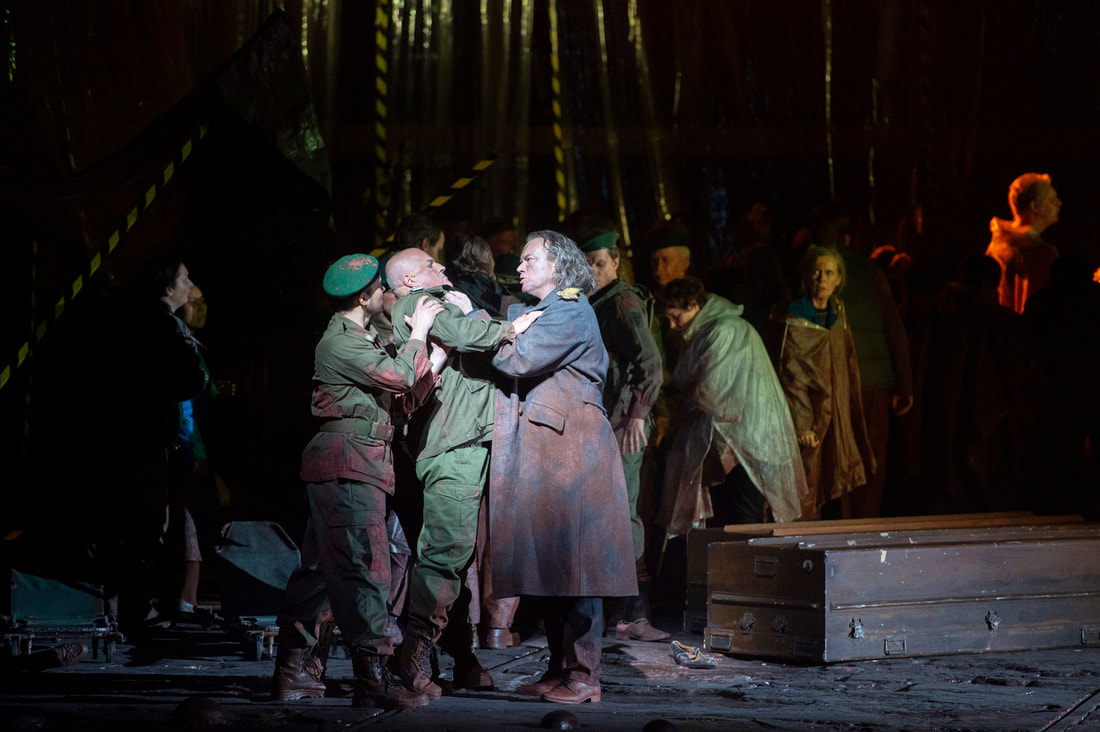
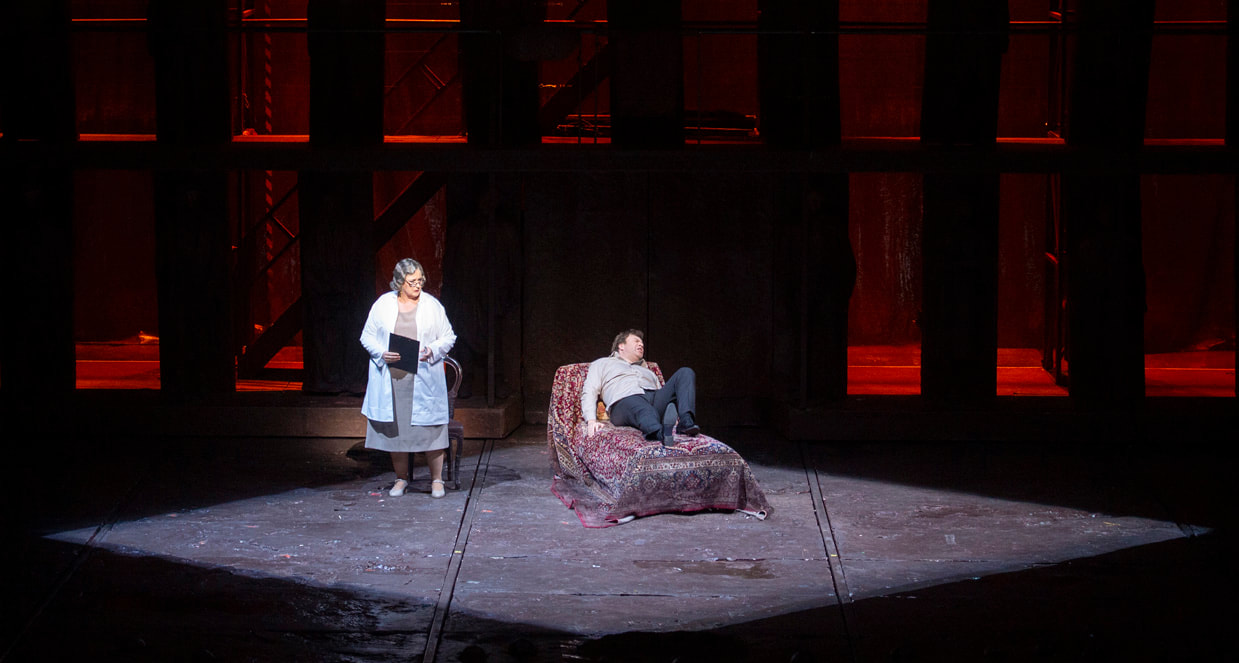
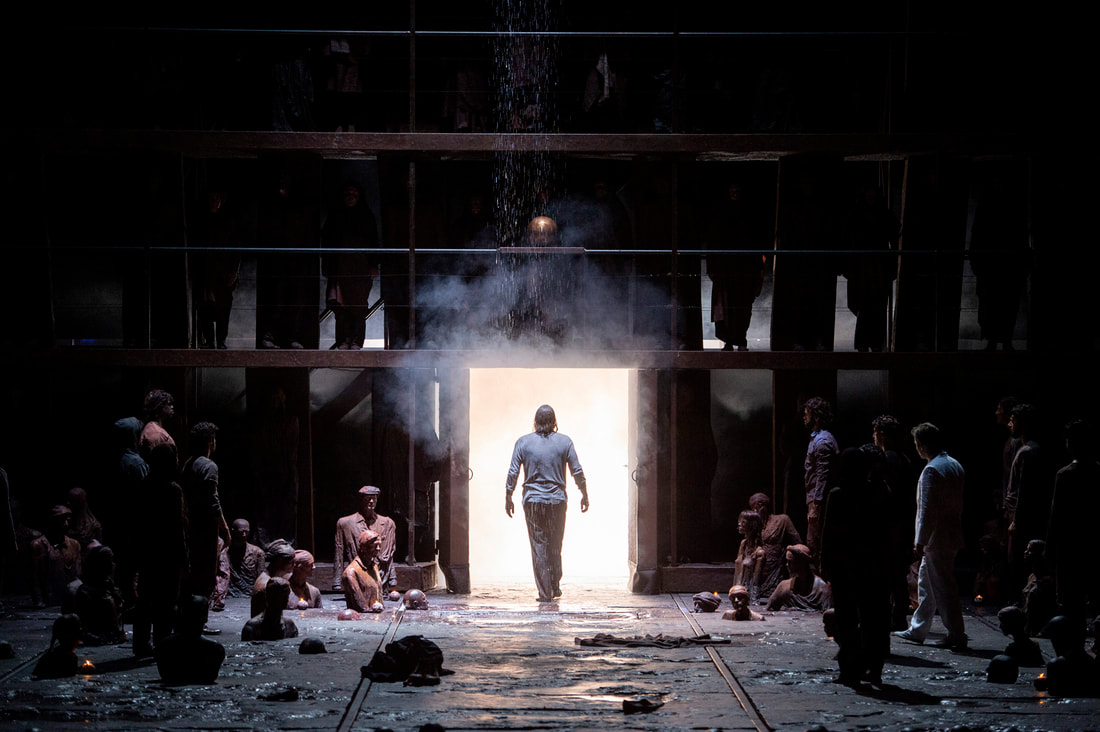
 RSS Feed
RSS Feed